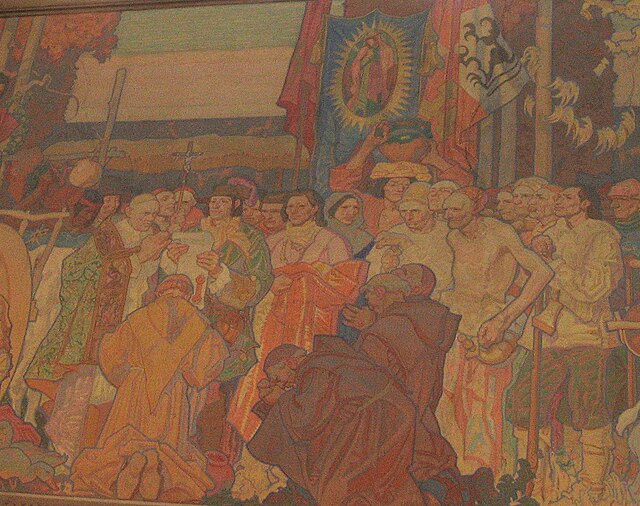Mariano Guadalupe Vallejo
Don Mariano Guadalupe Vallejo was a Californio general, statesman, and public figure. He was born a subject of Spain, performed his military duties as an officer of the Republic of Mexico, and shaped the transition of Alta California from a territory of Mexico to the U.S. state of California. He served in the first session of the California State Senate. The city of Vallejo, California, is named after him, and the nearby city of Benicia is named after his wife.
Mariano Vallejo, c. 1880–1885
Engraving of Vallejo, c. 1855.
General Vallejo with his daughters and granddaughters.
General Vallejo reviewing troops in Sonoma, 1846.
Californios are Hispanic Californians, especially those descended from Spanish and Mexican settlers of the 17th through 19th centuries. California's Spanish-speaking community has resided there since 1683 and is made up of varying Spanish and Mexican origins, including criollos, Mestizos, Indigenous Californian peoples, and small numbers of Mulatos. Alongside the Tejanos of Texas and Neomexicanos of New Mexico and Colorado, Californios are part of the larger Spanish-American/Mexican-American/Hispano community of the United States, which has inhabited the American Southwest and the West Coast since the 16th century. Some may also identify as Chicanos, a term that came about in the 1960s.
Gaspar de Portolá led the 1769 Portolá expedition and served as the first Governor of the Californias.
Juan Bautista de Anza led the 1775–76 Anza expedition.
Mission San Carlos Borromeo de Carmelo, established in 1770, was the headquarters of the Californian mission system from 1797 until 1833.
The founding of Los Angeles by the Felipe de Neve and the Los Angeles Pobladores in 1781.








